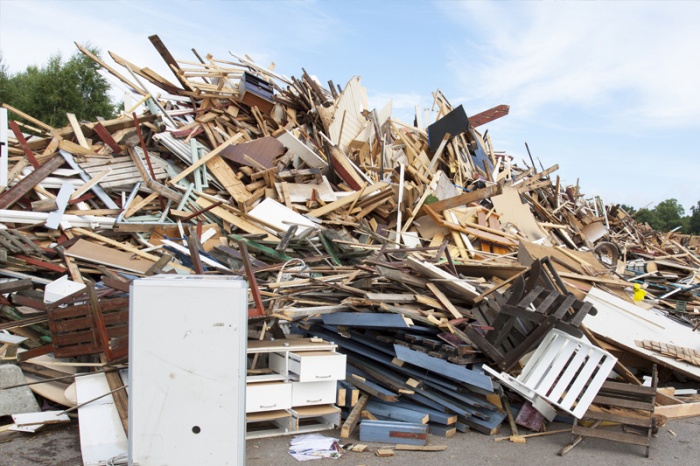Construction waste can be recycled, including building materials, metal, plastic, and glass. However, you must first sort construction waste into materials. For example, you must separate all metal from other types of garbage. Once the trash is sorted, it can be recycled through various avenues. Some communities have recycling centers that accept different recyclable items, including construction waste. Alternatively, some waste management companies will collect recyclable items from businesses and residents.
What is considered construction waste?
Construction waste is a term used to describe a wide variety of materials created due to construction and demolition projects. Some common examples of construction waste include lumber, drywall, insulation, metal roofing, shingles, concrete, asphalt, and brick.
The majority of construction waste can be recycled or reused. It can recycle lumber into new lumber products. You can recycle drywall into new drywall products; insulation can be recycled into new insulation products. Also, you can recycle concrete into new concrete products; you can recycle asphalt into new asphalt products. Last but not the least you can recycle brick into new brick products.
In addition to recycling and reuse options, many construction waste materials can also be composted.
How can you reduce the amount of construction waste produced?
Construction waste is a significant contributor to landfill waste. In the United States, the construction and demolition (C&D) sector account for almost 40% of all waste sent to landfills.
You can reduce this waste by following some simple guidelines:
1. Plan Ahead: Carefully plan each stage of the project so that you don’t end up with extra materials. This will help reduce the amount of waste produced.
2. Buy Local: When possible, buy materials and products from local suppliers. This will help reduce the transportation needed, leading to less pollution.
3. Recycle: Make sure you have a recycling plan and use it whenever possible. This can include recycling construction debris such as metal, plastic, and cardboard.
What are some standard methods for disposing of construction waste?
One of the essential elements of any construction project is waste disposal. Construction waste can come from many sources, including demolition, excavation, and building materials. There are several standard methods for disposing of construction waste, each with advantages and disadvantages.
The most common method for disposing of construction waste is landfill. A landfill involves burying the trash in a specially-designed landfill site. This is a relatively cheap method, but it can be environmentally harmful. Another standard method is incineration, which involves burning the waste to produce energy. This is a more expensive option but less harmful to the environment.
Another option is recycling. Recycling involves separating the waste into its parts and then reusing them. This can be more expensive than other methods, but it is more environmentally friendly.
What are the benefits of proper disposal?
When it comes to waste disposal, there are a lot of benefits to proper disposal. These benefits include reducing the amount of waste that goes into landfills and incinerators, reducing the environmental impact of waste, and preventing the spread of harmful diseases.
One of the most significant benefits of proper disposal is that it helps decrease the amount of waste that goes into landfills and incinerators. When people dispose of their trash improperly, it often ends up in these places, which can cause serious environmental problems. Proper disposal helps to prevent this from happening.
Another benefit of proper disposal is that it reduces the environmental impact of waste. When waste isn’t disposed of properly, it can release harmful toxins into the environment. This can hurt both people and animals. Proper disposal helps to prevent this from happening. I highly recommend using a dumpster rental company in tulsa, visit https://twobrotherscontainers.com/
